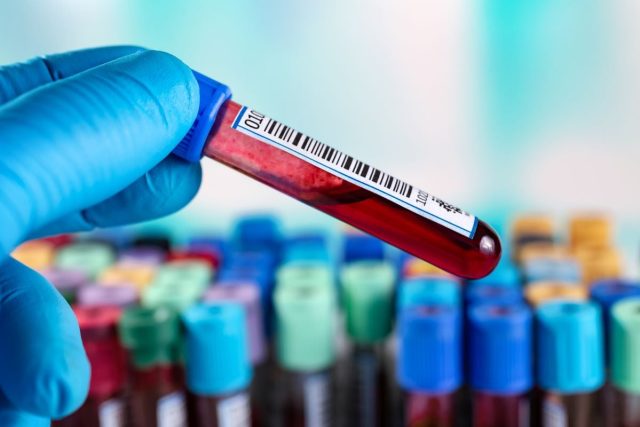Diagnostic accuracy 73 percent for dementia specialists compared with 91 percent using the APS2
By Elana Gotkine HealthDay Reporter
WEDNESDAY, July 31, 2024 (HealthDay News) — The amyloid probability score 2 (APS2) has high diagnostic accuracy for identifying Alzheimer disease (AD) among individuals with cognitive symptoms in primary and secondary care, according to a study published online July 28 in the Journal of the American Medical Association to coincide with the Alzheimer’s Association International Conference, held from July 28 to Aug. 1 in Philadelphia.
Sebastian Palmqvist, M.D., Ph.D., from Lund University in Sweden, and colleagues prospectively evaluated a clinically available AD blood test in primary and secondary care using predefined biomarker cutoff values among 1,213 patients undergoing clinical evaluation due to cognitive symptoms. The biomarker cutoff values were applied to primary and secondary care cohorts (307 and 200 patients, respectively); the blood test was then evaluated prospectively in the primary and secondary care cohorts (208 and 398 patients, respectively). The ratio of plasma phosphorylated tau 217 (p-tau217) to non-p-tau217 (expressed as percentage of p-tau217) alone and when combined with the amyloid-β 42 and amyloid-β 40 (Aβ42:Aβ40) plasma ratio (APS2) was determined.
The researchers found that 50 percent of patients had AD pathology in the primary and secondary care assessments. High diagnostic accuracy was seen in all four cohorts (primary and secondary care cohorts and prospective primary and secondary care cohorts; range, 88 to 92 percent). Diagnostic accuracy for identifying clinical AD was 61 percent for primary care physicians after clinical examination, cognitive testing, and a computed tomographic scan and 73 percent for dementia specialists compared with 91 percent using the APS2. The diagnostic accuracy in the overall population using APS2 did not differ from that using the percentage of p-tau217 alone (both 90 percent).
“Future studies should evaluate how the use of blood tests for these biomarkers influences clinical care,” the authors write.
Several authors disclosed ties to the biopharmaceutical industry. GE Healthcare contributed funding for the study.
Copyright © 2024 HealthDay. All rights reserved.



















